One of the most important factors to consider when setting up a bird feeder is the type of bird seed to use. There are a variety of bird feed options available, but the best and most common type of bird feed is bird seed.
The main purpose of having a bird feeder is to watch birds coming to the feeder and eating
. Bird feeders are one of the easiest ways to get started in bird watching.
With bird watching as one of the major reasons for having a bird feeder, it is important to know how much food is enough to feed them and keep them around. It is also equally as important to know how long the bird seed should stay in the feeders as well as how long it can last before it needs to be thrown away and changed for fresh seeds.
These are very important bits of information that any bird-watching enthusiast should know. It is also important to know this so that you can take out the seed before it spoils and causes harm to the birds eating from your bird feeders.
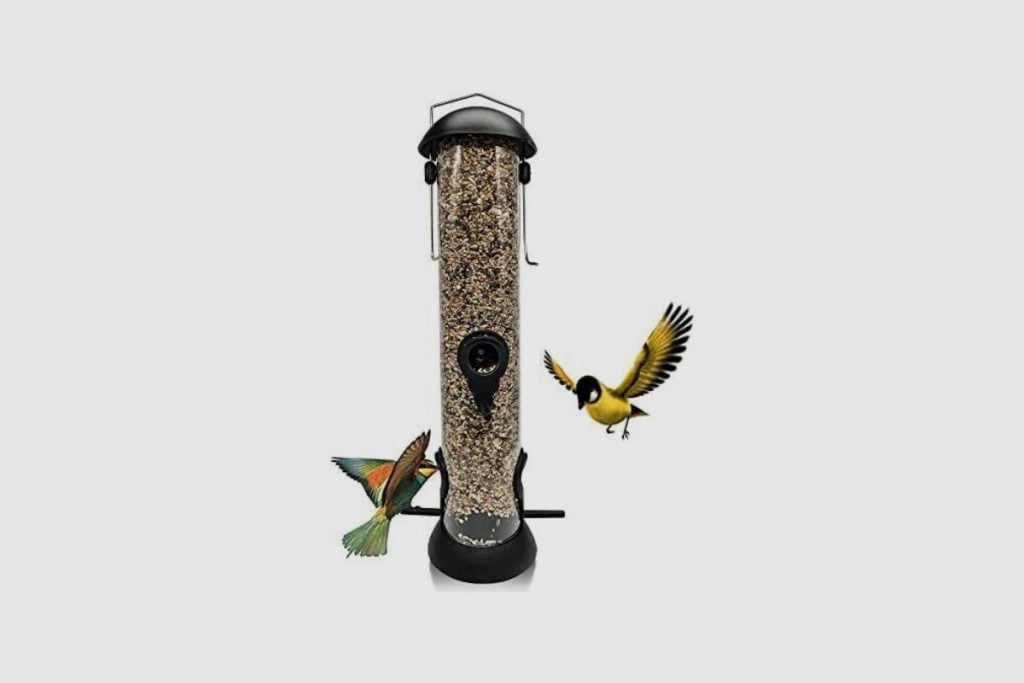
How Long Can Birdseed Stay in a Feeder?
Ideally, bird seeds can last for about three days before they begin to spoil and get rotten. This is because bird seeds are like any other food, and they can spoil if left out for too long. However, birdseed is usually a dried product, and we all know that drying a product is the best way to keep it from spoiling.
Although seeds going bad shouldn’t be a problem because they should be naturally dried products and, as a result, will last a long time, most bird seeds are purchased from stores and, as a result, are typically artificially dried and contain chemical preservatives. So, they will go bad after about three days. This only worsens and quickens the process when it rains, or the seeds get wet.
So, under normal conditions, you should only leave bird seeds out for about two-three days at most. A good way to manage the condition of your bird seeds would be to keep out enough bird seeds for about one-three days.
I leave out only enough feed for a day and then refill the seeds once they are finished. This is a good way to manage how much seed you give out, and you will always avoid having your seeds go bad. Once bird seeds go bad, they make the bird ill and will often drive away more birds from coming towards your feeders, so you must know how to spot bad seeds.
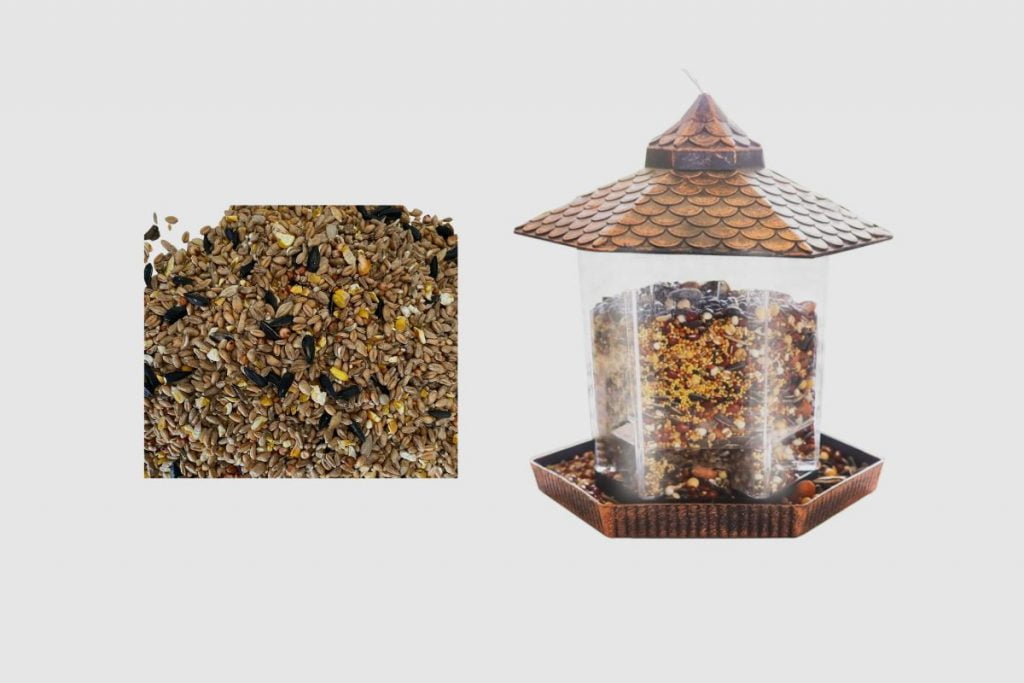
How to Know When Bird Seeds have Gone Bad?
Bird seeds usually go bad when they get wet and begin to form clumps, but what you should look out for are the hard clumps that don’t break under your fingers. This is because bird seeds will naturally clump together but will break apart when the seeds are good.
So, there is nothing to worry about when they clump together and break apart easily. The main issue occurs when they clump together and become very hard to break down. When seeds clump together, they may be harmful to birds. After all, they could choke the birds because they can’t be broken apart by the bird beaks. Once seeds begin to clump together and become hard, the seeds have gone bad and should be thrown away, and the feeder should be cleaned out.
Another easy way to spot bad bird seeds is to look for obvious signs of rotting. This can be in the form of mould formed on top of the seeds or insects beginning to hang around the feeder. Now it is easy to misinterpret the sight of insects around the feeders because insects around your feeders are normal.
However, the only time you should become worried about the insects is when they have begun to lay eggs inside of the bird seeds. Once you can spot larvae and eggs, it is time to clear out the feeder and replace the seeds with good ones.
One of the major ways to spot if bird seeds have gone bad is to look out for sprouting and germinating seeds. This usually occurs when they have gotten wet. It is easy to spot because all you are looking for are shoots starting to form from the inside of the feeders.
Another key feature to look out for is faeces. Many wild bird diseases are spread through their own contaminated faeces. So, it is important to make sure that you clean out the bird feeders regularly and thoroughly because their faeces will easily cause the bird seed to spoil.
You can also notice when bird seeds have gone bad when they begin to have a very pungent smell. This is because most bird seeds contain high levels of oil content, and when oil goes bad, it will usually come with a very potent smell. You can also notice that seeds have gone bad when you can smell very musty and mouldy smells.
Some other signs to look out for include seeds beginning to swell and seeds splitting open, or you can generally use your eyes to notice if there are more or fewer birds coming to your feeders than before. This is because birds know when the seeds have gone bad and will stay away from bad feeders with bad seeds.
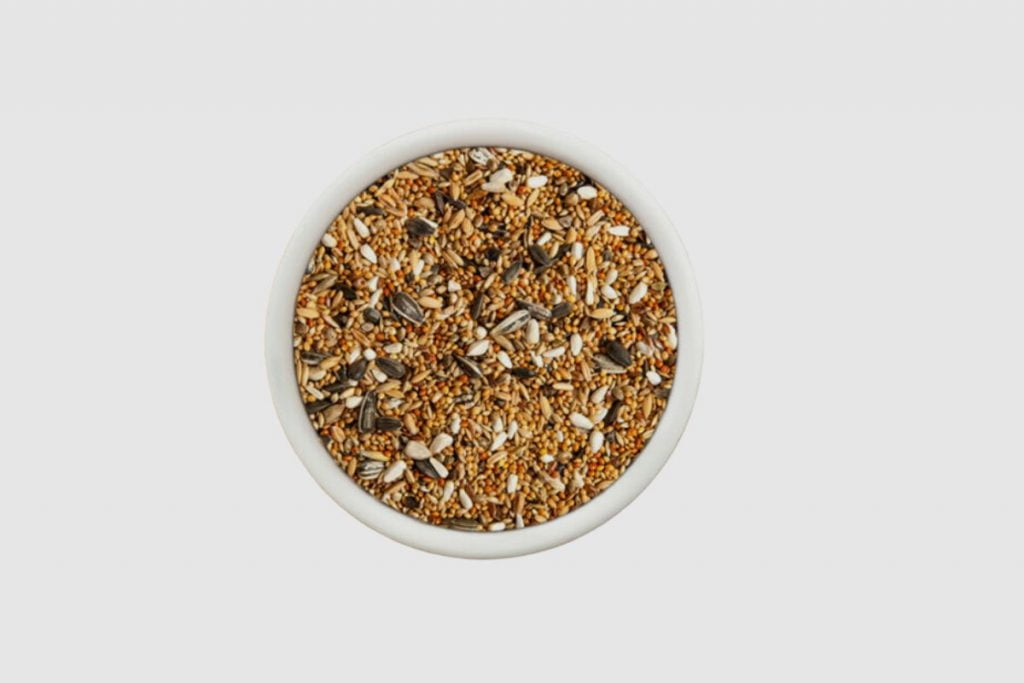
How to Keep Birdseed from Spoiling
- As an owner of a bird feeder, it is important to know when seeds go bad as it helps keep the bad seeds from getting to your feeders. However, it is also important to know how to keep your seeds from spoiling and last longer. This ensures that your seeds are always available for the birds to eat, as well as saves you some money because you won’t need to constantly buy new seeds or throw away bad seeds. So, here are a few tips to keep your bird seeds from going bad:
- It is important to store your bird seeds properly because storing your seeds in airtight containers, which are in cool, dry places that are out of the reach of rodents, will help make your birdseed last longer.
- Avoid buying more seeds than you will need. It is important not to stick pile your seeds and only have enough to last for a few weeks rather than a few months. This will keep you from having more seeds than they can eat, as well as keep you from throwing away the seeds that begin to spoil.
- It is also important to fill your feeders with enough feed for maybe a couple of days at most. As I said, I only refill my feeders after 2-3 days. I also clean out the feeders anytime I fill them up to remove any old seeds instead of putting new seeds on top of the old ones.
- Also, it is important to clean out your feeders regularly and thoroughly. As I had previously stated, I clean out my feeders once every three days. This will remove any harmful bacteria, excrement, insects and their eggs, and mouldy seeds.
- Once you have learned how to maintain your seed and spot the spoiled ones, you should be able to keep your seeds lasting longer and fresher. This will always keep the birds coming to your feeders for you to watch.
What are Birdseeds?
Bird seeds or bird food, are foods consumed by wild and domesticated birds. It is usually a mix of oil sunflower seeds, some peanuts, striped sunflowers, cracked corn, and some dried fruit. There are several different kinds of bird seed, as well as mass-produced bird seed, sold in stores. Bird seeds are all about providing the maximum amount of nutrients for the birds consuming them. It is important to give out quality seeds to birds so that they will come back to your feeders all the time. Some examples of bird seeds are suet, sunflower, and mixed seeds.
Conclusion
It is important to maintain your feeders and your seeds because birds will only come to clean feeders with healthy seeds. So, if you want to continue to watch birds and enjoy their company, then you will need to keep the feeders clean, remove the bad ones, keep them out for only a few days, and provide top-quality feed for the birds to eat. I hope you found this article useful and informative. If you have any questions, just leave them in the comments section, and I’ll get to them as soon as possible. Thank you.
Images – How Long Can Birdseed Stay in a Feeder?



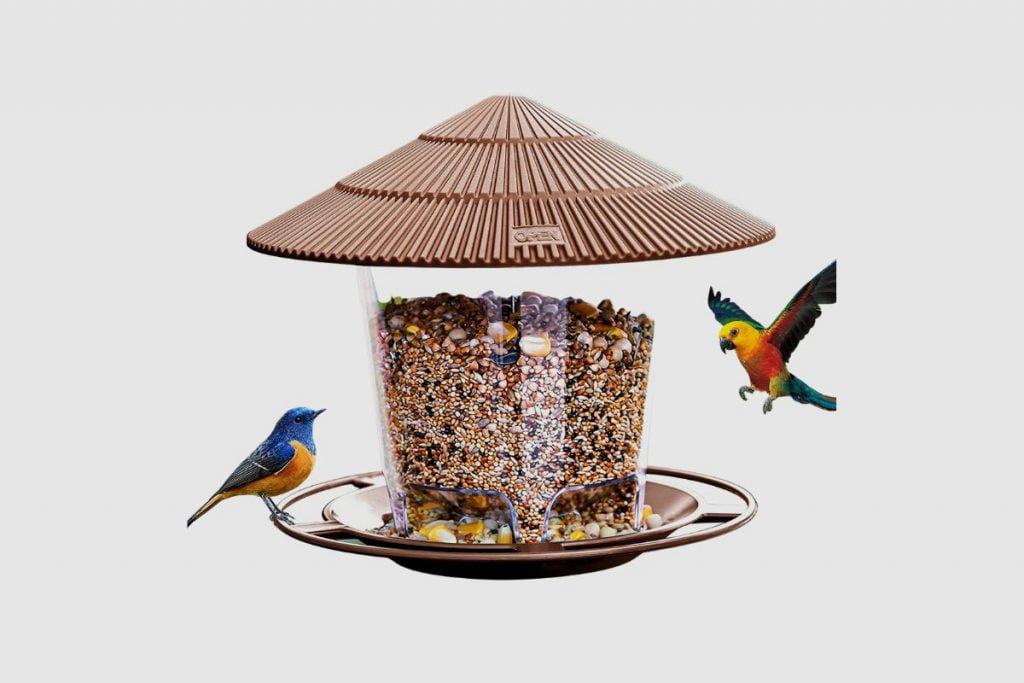
References: Bird Seed.
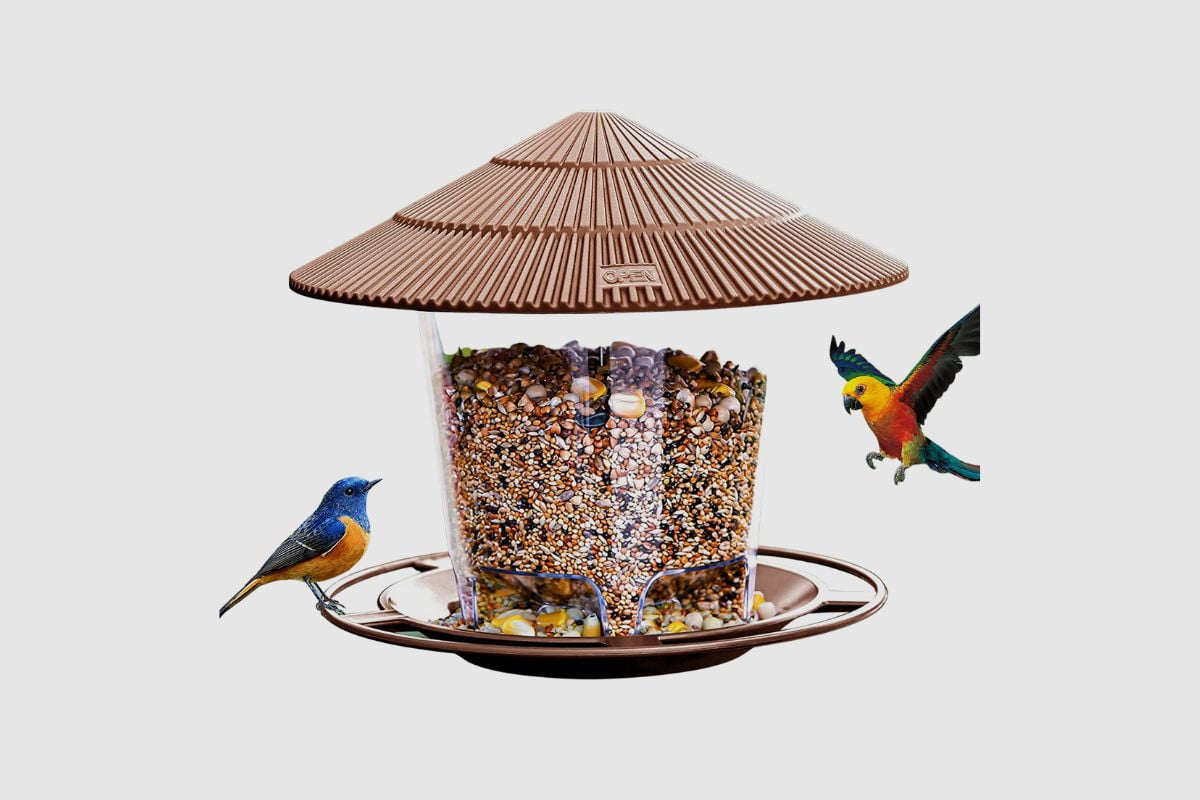
What are the different recipes for hummer feeders. I use sugar water at 4 to 1 mix.
Hi Jim, thanks for reaching out. Regarding your question, you might want to read this post, “What To Fill Hummingbird Feeders With“, where I cover the question in detail. Thanks.